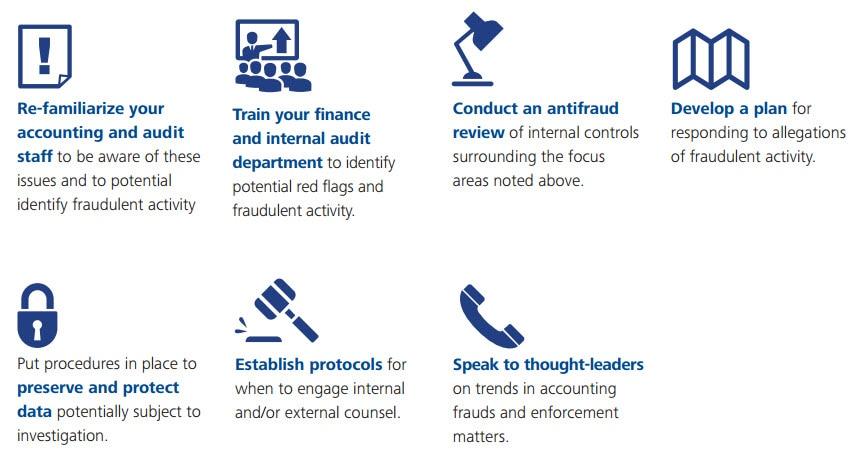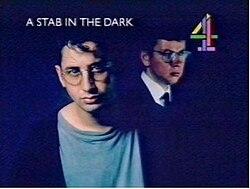Oh, the glorious world of financial planning, where buzzwords fly like confetti, and everyoneS a self-proclaimed guru with the latest get-rich-quick scheme. But let’s pump the brakes on that delusion train for a moment. If you’re one of those who think scribbling down random numbers on a napkin or throwing darts at a dartboard counts as a financial plan, it’s time for a serious reality check. Spoiler alert: it’s not a financial plan; it’s more like a financial fantasy. Congratulations, you’re about as prepared for your financial future as a goldfish in a desert. So, before you start patting yourself on the back for your supposed fiscal genius, let’s dive into why guessing is not planning, and why you might want to trade your crystal ball for a calculator. Welcome to the land of adulting, where we debunk myths, crush egos, and help you face that raging financial dumpster fire with something a little sturdier than wishful thinking.
So You Think Your Financial Plan is Legit: Spoiler Alert—It’s Not
Okay, let’s cut to the chase. You call it a financial “plan” as if scribbling numbers on the back of a napkin is supposed to impress anyone. Spoiler alert: it’s not fooling anyone, least of all your bank account. You want to believe you’re a financial genius, but honestly, it’s like trying to map your way out of the jungle with a crayon. Real financial planning involves actual strategies, not just guessing how much you’ll spend on avocado toast this month. Because here’s the truth bomb: if your financial strategy looks like a choose-your-own-adventure book, you’re way off course.
Still think you’re nailing it with your half-baked strategy? Let’s break it down for you:
- You “estimate” expenses without tracking them? Basically financial roulette.
- Planning for the “future” but haven’t updated your plan in a year? More like daydreaming.
- Investing based solely on which stock ticker looks cute? Oh, honey, the stock market doesn’t care.
| Myth | Reality Check |
|---|---|
| “I can save whatever’s left over!” | what’s left over? Nada. Zip. Zilch. |
| “I’ll start saving when I earn more.” | You’ll just find new ways to blow it. |
| “budgeting is too hard.” | Yeah, like being broke is easy? |

Why Your Random Stab in the Dark Doesn’t Count as Planning
You wouldn’t think picking lottery numbers qualifies you as a stock market genius, right? So why on earth do you call winging your finances a plan? Stop fooling yourself! the universe will not magically arrange your paycheck into a retirement fund while you aimlessly scroll thru online shopping deals.Let’s break this down: a real financial plan is not a mystical force that knocks your credit card balance into alignment… it requires actual effort and forethought!
Here’s a hot tip for you: a “stab in the dark” approach doesn’t fly in the financial world. Planning means checking things off the list, like:
- Actually knowing how much you spend every month.
- Setting specific goals (and “buying a unicorn” doesn’t count).
- Tracking where your cash goes, before you blow it on another avocado toast.
Believe it or not,that tired old spreadsheet won’t organize itself. But hey, if you enjoy living on the edge without a backup plan, more power to you. Just don’t be surprised when your financial future looks like a cow in a tornado—utter chaos!

Stop Trying to Pass Off monopoly Money as Serious Strategy
so, let me get this straight: you’re trying to call a few wild guesses and a sprinkle of hope a “financial plan”? Let’s face facts here, your so-called strategy is about as sturdy as a sandcastle in a tsunami. You can’t just pull numbers out of thin air, slap them together with a few buzzwords, and expect anyone to buy it. Spoiler alert: they shouldn’t. This isn’t a game of chance, and the stakes are a bit higher than playing for fake hotels on Boardwalk. Crafting a solid financial plan is not about throwing darts in the dark and hoping it sticks. If you find yourself using the words “maybe” and “hopefully” a lot, then it’s time to reassess.
Here’s a pro tip: Stop pretending. If you’re running your finances like a reality TV show, complete with drama and unpredictability, you’re doing it wrong. Need a checklist to help you separate the BS from a real plan? Here’s what you actually need:
- Real Goals: Not “get rich quick”. Think, “build steady wealth over time”.
- Solid Data: Use past trends and actual data, not mystical foresight.
- Actionable Steps: Lay down concrete actions, not vague dreams.
.wp-block-table {
width: 100%;
border-collapse: collapse;
}
.wp-block-table td, .wp-block-table th {
border: 1px solid #dddddd;
text-align: left;
padding: 8px;
}
| Element | Wrong Approach | Right Approach |
|---|---|---|
| Budgeting | Wing it | Detailed tracking |
| Investments | Random picks | Research-based choices |

Time to Get Real: Turn Your ‘Plan’ into Something That Won’t Make Us Laugh
Okay, enough with the optimistic scribbles on a napkin you call a financial plan! If your so-called strategic masterpiece is based on wishful thinking and random guesses, you might as well consult a crystal ball. You’re not making a plan; you’re writing fantasy fiction. Let’s cut the fairy tales. your so-called strategy needs to stop being a pipe dream and start acting like it was developed by a grown-up. Stop predicting market trends like you’re Harry Potter with a wand; instead, embrace cold, hard facts. Here’s a reality check: Break down your spending into actual categories like ”subscriptions I’ll forget to cancel” or “emergency gourmet cheese runs.” Get real with the numbers, buddy.
Look, this isn’t hogwarts School of Financial Wizardry. Ditch that unicorn spreadsheet where earnings magically triple. Instead,face the facts with numbers that actually make sense. Try mapping out how to actually make that dough, and start adding realistic columns like “what I can afford if I stop buying unneeded gadgets”. Don’t rely on the power of positive thinking; it’s not a Hogwarts spell book. in short, transform that fantasy document into a plan that won’t make people giggle at brunch. Ask yourself some basic questions: Can you cover your essentials if life throws lemons at you? Are you saving anything other than lint in your pocket? Craft a chart and stick to it—let’s make sure your ‘plan’ isn’t an improv comedy sketch.
.table-financial-plan {
border-collapse: collapse;
width: 100%;
margin: 20px 0;
font-size: 14px;
text-align: left;
}
.table-financial-plan th, .table-financial-plan td {
border: 1px solid #ddd;
padding: 8px;
}
.table-financial-plan th {
background-color: #f4f4f4;
}
| Category | Current Spending | Realistic Budget |
|---|---|---|
| Streaming Services | $50/month | $20/month |
| Coffee Runs | $100/month | $40/month |
| dining Out | $200/month | $100/month |
| Gadgets | $300/month | $0/month |
Q&A
Q&A:
Q: What exactly qualifies as a financial plan?
A: Oh, you mean the ancient art of scribbling random numbers on a napkin and calling it a “strategy”? Newsflash! A real financial plan isn’t a game of financial Pin the Tail on the Donkey. It’s a well-thought-out, comprehensive roadmap of your money journey—crafted with more care than your latte art. It includes goals, budgets, investments, risk management, and tax strategies. If you’re winging it like a first-time karaoke performer, it’s not a plan; it’s a fantasy.
Q: Why do people think guessing is equivalent to planning?
A: If I had a dollar for every time someone mistook their shot-in-the-dark as a eureka moment, I’d have enough for a really fancy dinner. Humans love shortcuts and magically thinking, especially when it comes to money. It’s a mix of overconfidence and pure laziness.Who wouldn’t want to think they can plan their financial future during their lunch break while dodging work emails? Spoiler: You can’t.
Q: How can one spot a fake financial plan?
A: If your “plan” only exists in a spreadsheet from 2012 and relies heavily on “probably,” “hopefully,” or “I guess,” congrats! You’re the proud owner of a financial mirage. another clear sign is when it promises you’ll be a multi-millionaire by next Tuesday without doing squat. Not to mention, if it only includes lottery tickets and those oh-so-tempting get-rich-quick schemes, then it’s faker than a reality TV star’s tears.
Q: Is there a real danger in not having a proper financial plan?
A: Let me put it this way: Imagine playing poker blindfolded, with your entire life savings at stake.Guessing your way through your financial future is equally brilliant. Without a plan, you’re basically asking for chaos to crash your bank account, leaving it emptier than your fridge on grocery day. Bad planning—or worse, no planning—leads to debt, stress, and a retirement that involves a cardboard box.
Q: What’s your advice for getting a proper financial plan?
A: First off, embrace reality and put your crystal ball back where it belongs—out of sight. Consider getting help from someone who didn’t just get their financial education from an online quiz. Hire a certified financial planner or use legitimate tools to build a real plan. dip into the unthinkable: set goals, track your spending, and review your progress regularly. Revel in the novelty of not just winging it. Your future self and your bank account will thank you.
In Retrospect
So, let’s wrap this up, shall we? If you’ve been calling your half-baked, wing-and-a-prayer collection of numbers a “financial plan,” it’s time to come back to reality. Slapping numbers on a spreadsheet and hoping for the best isn’t planning—it’s gambling. And let’s be honest, the last thing you need is to gamble with your future. Stop pretending that your financial improv act is anything but a chaotic mess waiting to implode.Get real,get serious,and for the love of all things green and spendable,get a genuine plan in place. Try using logic,research,and maybe even,I don’t know,talking to a professional who’s not still living in their parents’ basement. As at the end of the day, making a financial plan based on guesswork is like trying to bake a cake without a recipe and expecting a five-star restaurant dessert. Spoiler alert: it’s not going to happen. So cut the crap, do the work, and build yourself a financial safety net that’s not made of hot air. You’ll thank yourself later when you’re not eating ramen noodles every night of your retirement.


